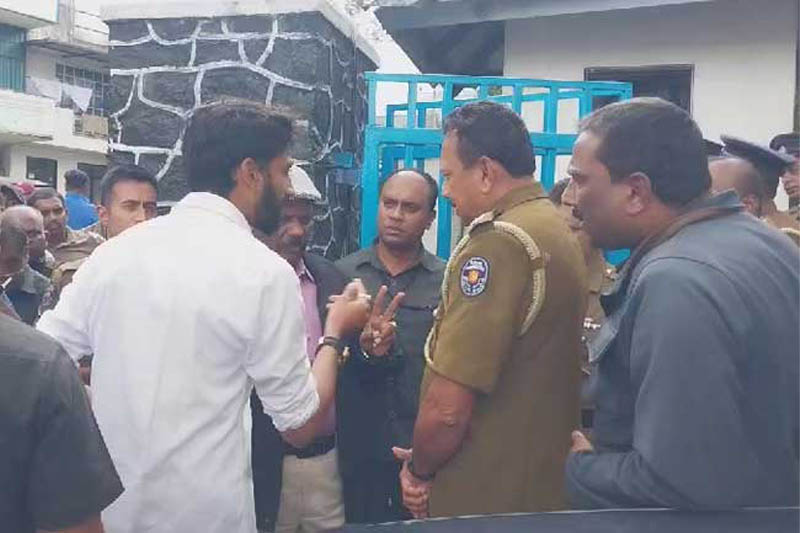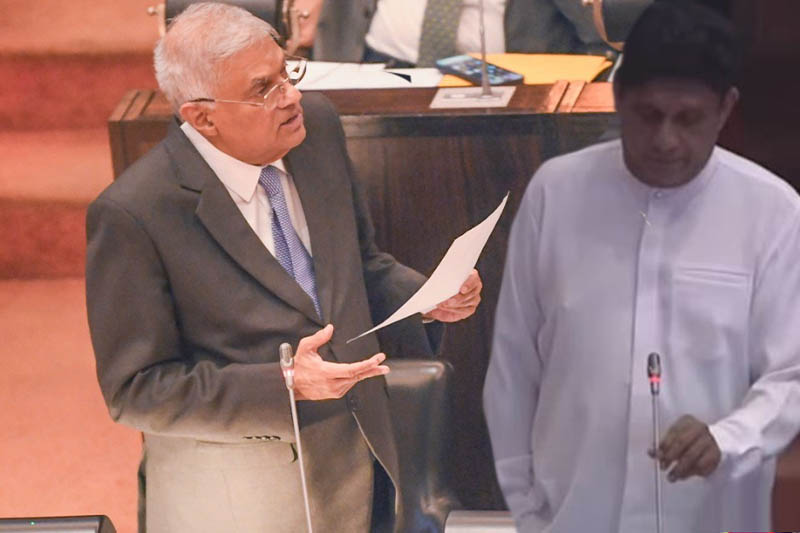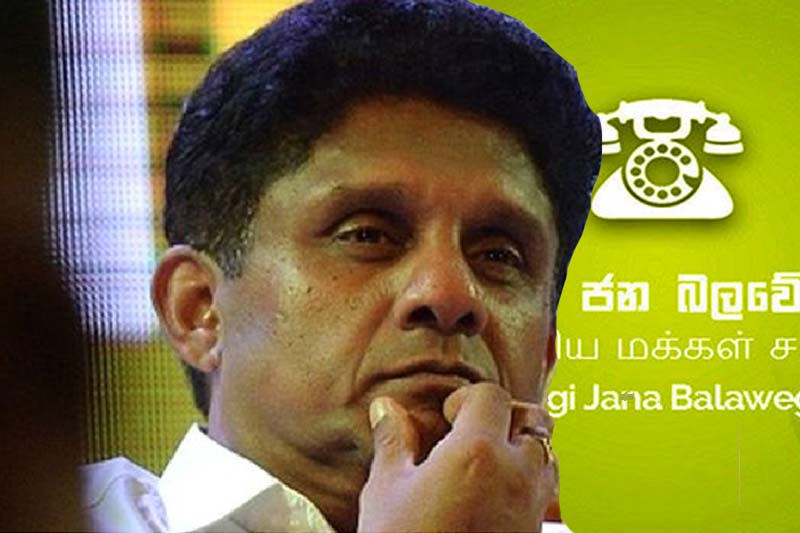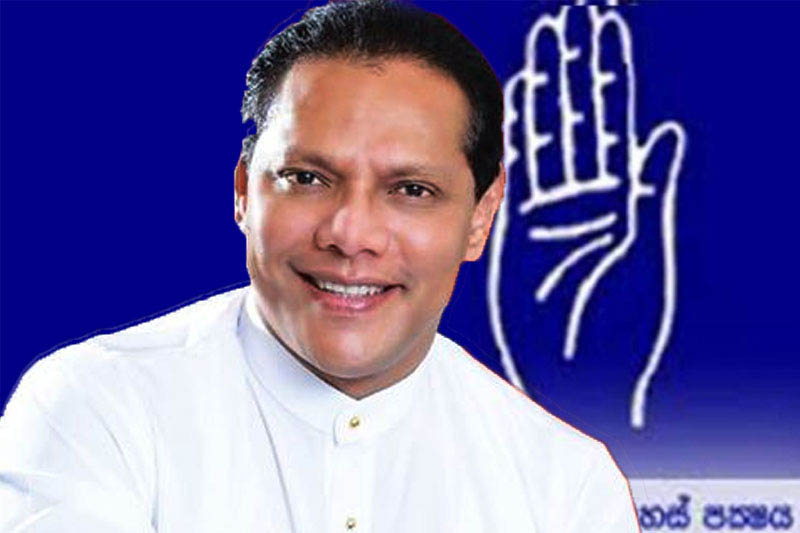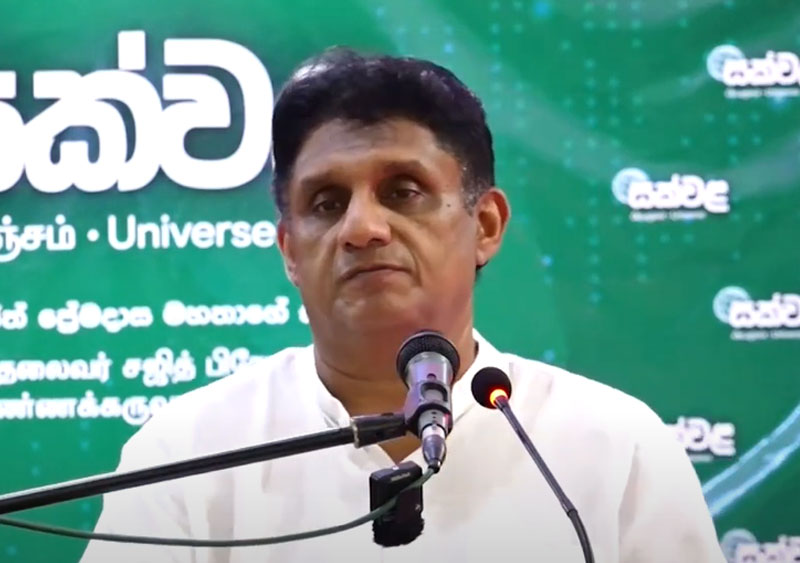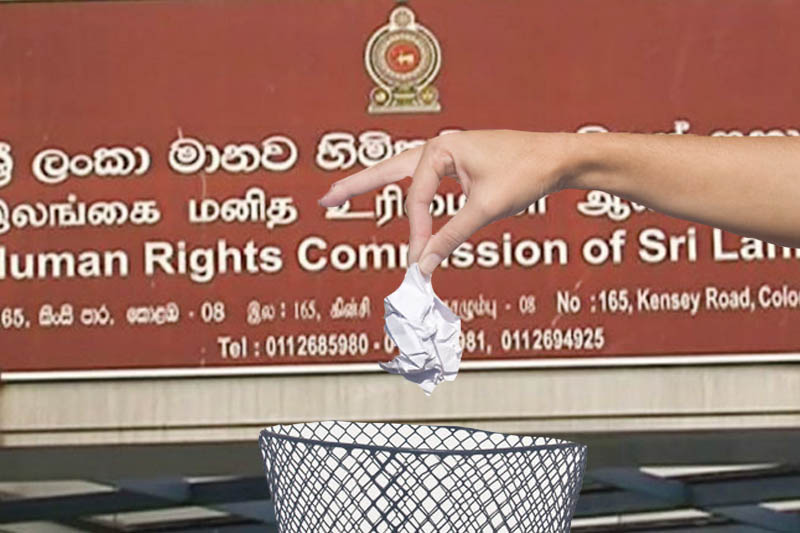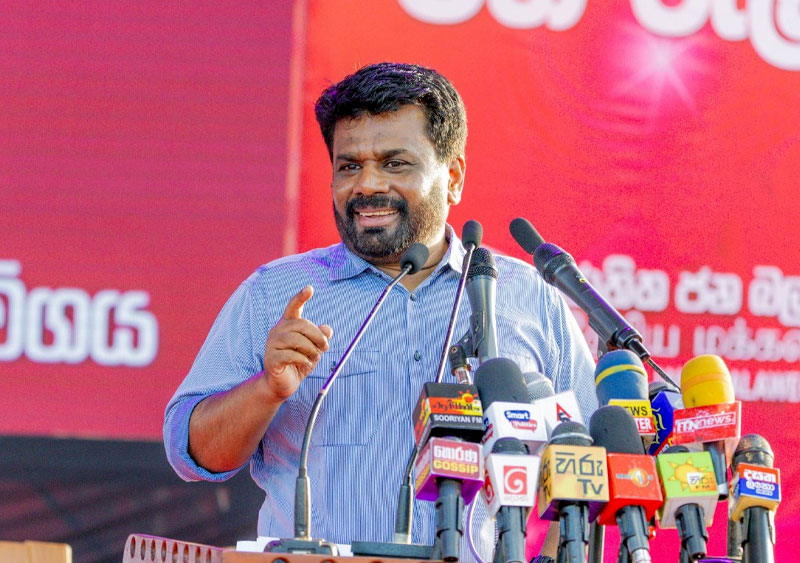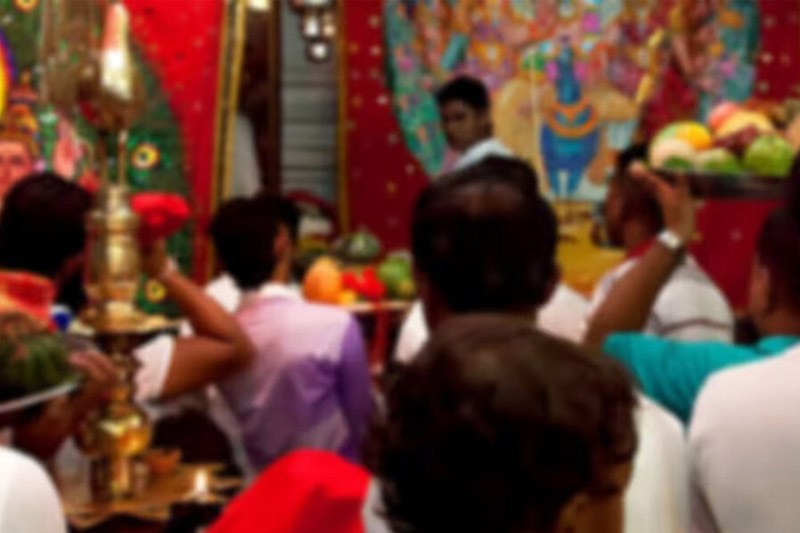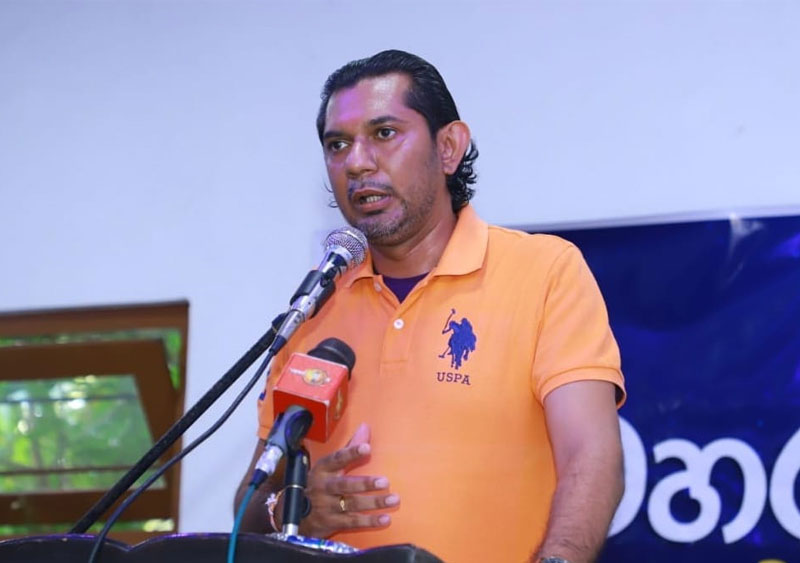A group of members of the Ceylon Workers' Congress (CWC) led by minister Jeevan Thondaman staged a protest in front of Nuwara Eliya police station yesterday (01).
Additional police were called in from nearby divisions to maintain law and order.
Three days ago, Thondaman and his supporters stormed Point Pedro estate and took its management hostage over a suspension of some workers.
According to police sources, Thondaman had threatened the estate’s top official at gunpoint which caused him to have a heart attack and to be rushed to hospital.
The minister and his supporters staged the agitation against the police for having recorded a complaint from the estate chief with regard to the incident.
After initially refusing to discuss the matter with the police, he talked to top officers and informed his supporters that agreement has been reached to withdraw the complaint.
Then, they dispersed.
On 30 May, Thondaman and his supporters caused a major disturbance in Nuwara Eliya town, taking the law into their hands.
STF commandos were deployed to quell the situation.
Defending his action, Thondaman said in a statement that he had to intervene into an ongoing trade union action by workers at the Point Pedro estate belonging to Kelani Valley Plantations.
“I intervened as the General Secretary of the Ceylon Workers Congress, the largest trade union representing the plantation workers. The workers had been striking in response to a number of grievances:
- Refusal by the company to pay their legal minimum wage of Rs. 1700 a day ($5.5).
- 2. Estate managers forcefully wiping out the red pottus of Tamil women coming to work and removing their jewellery. 3. Replacing tea bushes with coffee.
As a responsible trade union, we wrote several letters to the management asking them to resolve this matter respectfully and with decency. However, our letters were ignored,” he said.
Thondaman said that in response to the strike, the managers unlawfully terminated the employment of three workers and used the Police to intimidate and threaten striking workers.
“The management terminated their employment without conducting any inquiries. It is also illegal to terminate employment in response to a strike action. There were also no reasonable grounds for the police to step into an employment dispute between a private company and its union and threaten workers. Unfortunately, this decision by the management and police further aggravated the workers. As the General Secretary of the union, I stepped in to avoid the matter from further escalating,” he said.
Thondaman said that he entered the factory to release workers who were being kept inside by force by the management.
”Workers have the right to protest. No one can lock them inside against their will. I then called for a meeting between the union and the estate management. However, during the meeting, Acting ASP Ekanayake entered it without cause, sat on the side of the estate management and started taking the side of the management. This was unprecedented and violates the IGP’s circular prohibiting Police interference into Trade Union meetings and action. This itself showed the culture of intimidation that is constantly used by estate management against their workers. As the police have no business in interfering into a union meeting, I had to remind him of the Circular and ask him to step out,” the minister said.
Thondaman said that paying below the legal minimum wage, forcing workers to wipe out their cultural and religious identity and removing their personal jewellery are all examples of the modern day slavery that is being practiced by the plantation industry.
Related News:

